Dante Alighieri stands as the quintessential Italian poet, writer, and philosopher. His masterpiece, "The Divine Comedy," originally known as "Comedìa" and later reimagined as "Divina" by Giovanni Boccaccio, represents one of the most significant works of the Middle Ages. It not only captivates the imagination, but also lays the essential foundation for the evolution of the Italian language, drawing from the richness of the Florentine vernacular.
This piece is commonly regarded as one of the greatest in both Italian and Western literature, and it's structured by the author into three main sections: Inferno (Hell), Purgatorio (Purgatory), and Paradiso (Heaven). Each section is further divided into 33 cantos, except for Inferno, which has an additional canto, resulting in a total of 100 cantos in the poem.
The narrative delves into the afterlife, examining the fate of souls after death, and presents a vision of divine justice in which individuals are rewarded or punished according to their earthly actions. Allegorically, the poem symbolises the soul’s journey toward God.
Dante's Attitude Towards the Myth
Dante's journey is guided by three prominent figures, each representing different aspects of knowledge and spirituality. Virgil, who represents human reason, accompanies Dante through Hell and a significant portion of Purgatory. Following him, Beatrice takes over to convey divine revelation, grace, and faith, guiding him from the latter part of Purgatory onwards. Finally, Saint Bernard of Clairvaux represents contemplative mysticism and devotion to the Virgin Mary, leading Dante in the concluding sections of Heaven.
The poem delves into a range of themes and includes numerous references to notable historical and literary figures, such as Ulysses from Homer's Odyssey, enriching the narrative with cultural significance.
In Dante's epic, Ulysses plays a secondary role. During the Middle Ages, he was well-known for his persuasive oratory skills, but he was also recognised for the deceptions he had committed. In the depths of hell, he is condemned to suffer eternally. He does not recount to Dante his remarkable adventures in the legendary Trojan War or his painful return to his beloved Ithaca; instead, Ulysses talks about his death.
In Canto XXVI of Dante Alighieri's Inferno, the narrative focuses on the author and his guide Virgil as they navigate to the eighth bolgia of the eighth circle, which is designated for fraudulent counsellors.
In this dark setting, numerous flames resembling fireflies illuminate the surroundings; each flame represents a sinner. These conceal the damned individuals, who, in their lifetimes, engaged in secretive plots of deception. They flutter like tongues, symbolising the deceitful nature of their actions.
Dante, curious about the souls within the flames, leans against a rock and observes intrigued, until he finds a split one. He learns that this particular flame contains the souls of Ulysses and Diomedes, who conspired together in the deception of the Trojan Horse.
Prompted by Dante's interest, Virgil calls out to the two souls, and the forked flame identifies Ulysses.
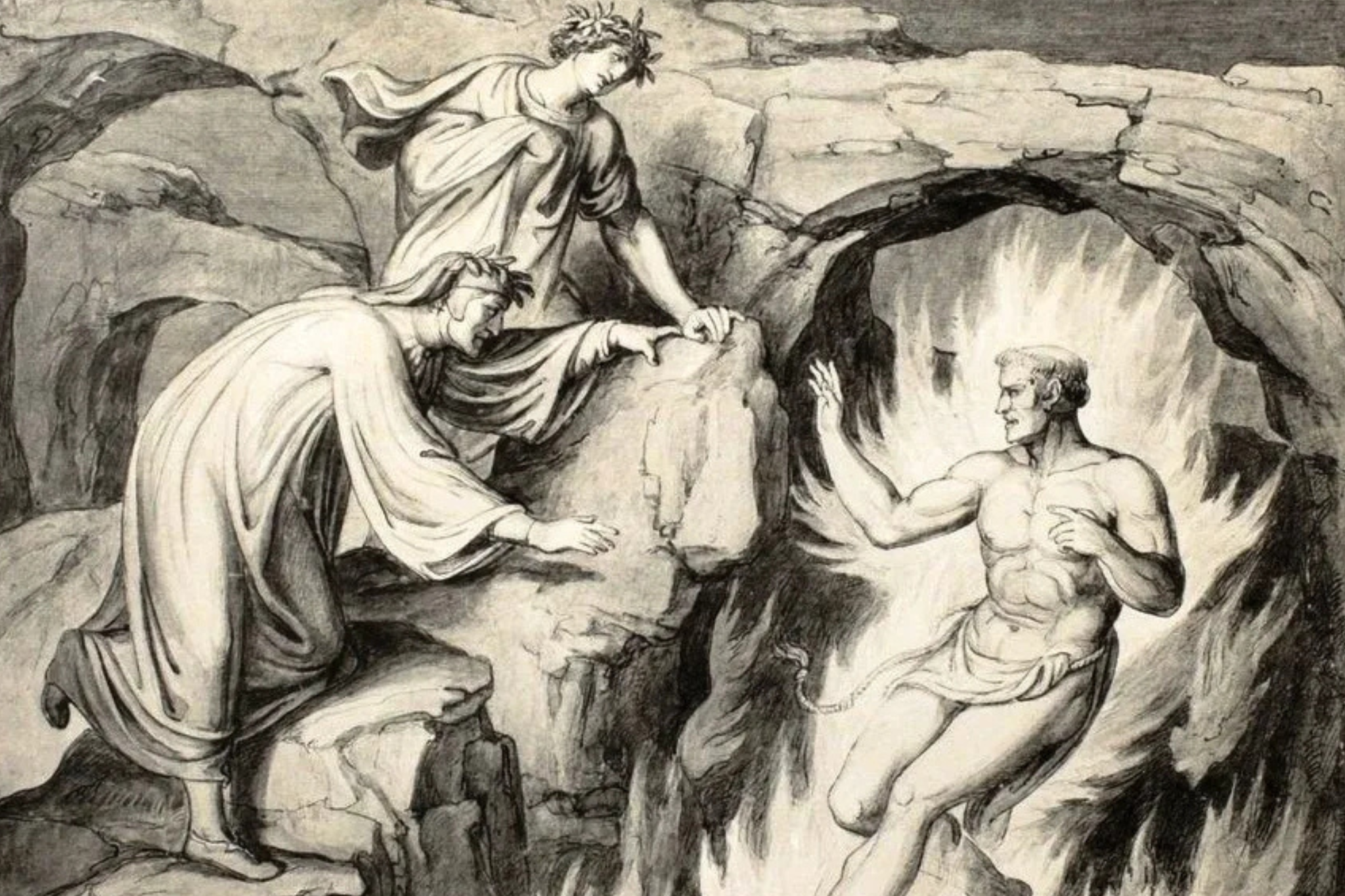
The conversation shifts to Ulysses' fate, stirring Dante's curiosity about the hero's death.
Ulysses explains that, after his encounter with the sorceress Circe, he chose not to return to Ithaca with his companions. Instead, he sought to explore the open seas once more, motivated by a deep desire for knowledge about the world and humanity.
He acknowledges abandoning Ithaca and his loyal wife to embark on a journey toward the farthest reaches of the earth.
This perspective sheds light on Ulysses' character and motivations, presenting a nuanced interpretation that is not found in the original text.
The culminating message of this journey serves as a warning from Dante about human pride, emphasising that such arrogance is destined to fail if it oversteps its boundaries without the support of divine grace.
Sins of Dante's Ulysses
Ulysses and Diomedes are depicted as fraudulent advisors in literature, where they are punished for their lifetime of deception, notably exemplified by their clever orchestration of the Trojan Horse.
Their punishment, a result of the law of retaliation, involves being engulfed in flames, symbolising the consequences of their misuse of language for fraudulent purposes.
Ulysses is especially condemned not only for his acts of fraud but also for his audacious defiance of divine grace, relying solely on human intellect rather than seeking spiritual guidance.
In Dante’s portrayal, Ulysses takes on the role of a tragic hero driven by an insatiable thirst for knowledge, a trait that ultimately leads to his downfall. This interpretation marks a significant departure from the original depiction in Homer's works.
In Homer's writings, Ulysses is characterised as a resilient traveller who overcomes numerous challenges and temptations, all while yearning to return to his home in Ithaca.
His nature embodies a complex duality: both weakened by his longing for home and empowered by his courage to confront numerous adversities.
Dante, in portraying the character, emphasises his wisdom and guile. The overall image that emerges from Ulysses is that of a cunning but untrustworthy man: a trickster who doesn't deserve the trust of those who encounter him. Dante brings out the hero's courageous side, a thirst for knowledge and truth.
His Ulysses is a traveller seeking the unknown, with no desire to return to his homeland. Neither the desire for his son, nor pity for his father, nor affection for Penelope, can hold back the traveller. Thus, in Dante's vision, Ulysses is the one who, as a man, pushed himself beyond all limits, even to the point of death. He has lost all sense of home, for him wandering has become the only, sole form of life.
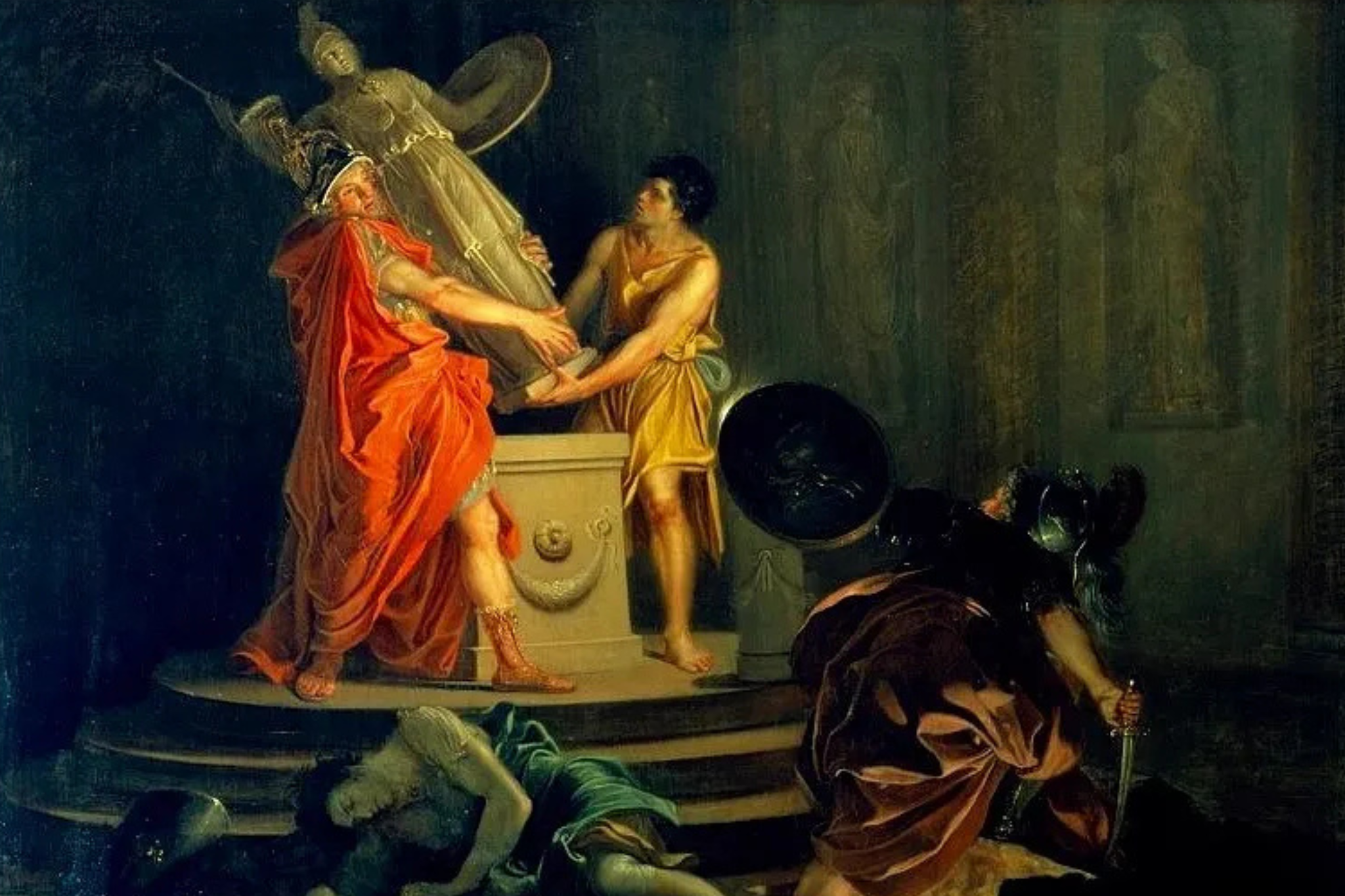
Ulysses' Journey as an Allegory of Existence
The Divine Comedy is a literary work that chronicles Dante's journey, which serves as an allegory for humanity's quest for goodness and perfection. In this narrative, he expresses admiration for Ulysses, highlighting his determination and passion, particularly as he addresses the fearful sailors confronting perilous challenges.
"Consider your lineage: / you were not made to live like brutes, / but to pursue virtue and knowledge." (Inf., XXVI, 118-120)
In Dante's view, Ulysses becomes a symbol of a profound love for knowledge. The poet characterises the conclusion of Ulysses’ journey as a "mad flight", interpreting his venture beyond the Strait of Gibraltar as a transgression of the limitations set by God on human understanding. This crossing leads to Ulysses' punishment, yet it also immortalises his audacious quest for discovery.
Ultimately, Ulysses's words encapsulate Dante's appreciation for the hero's extraordinary mission, illustrating the value of ambition and the relentless pursuit of wisdom that defines the human experience.
Dante's Journey as an Allegory of Life
The journey also serves as an allegory for existence and exile. It represents a universal image of humanity, depicting individuals who are far away from their true home and separated from the pursuit of ultimate happiness and goodness.
"Midway upon the journey of our life, I found myself within a dark forest
for the straight path was lost." (Canto I)
The exploration of the three realms of the underworld serves as a metaphor for the challenging quest to discover the "straight path". This course, obscured by the "dark forest", can ultimately be navigated through the application of reason and faith.
The path to regeneration is not solely significant for Dante as a person, but holds implications for the society itself. Within the Divine Comedy, the poet takes on the roles of both protagonist and observer, presenting a narrative of redemption.
Furthermore, Ulysses is depicted in Dante's Inferno as being condemned, in part, due to his pagan beliefs. In the 14th century, a significant parallel began to develop between religious literature, exemplified by Dante, and the revival of classical mythology, which arose from the interplay between classical traditions and Christian culture.
During this time, themes of heroism, along with expressions of both spiritual and eroticism– previously suppressed by the influence of Christian doctrine, gained renewed visibility and importance.
In Dante's piece, Ulysses serves as a narrative foil to Dante himself, highlighting distinct paths toward Purgatory. Dante’s journey is characterised by an ethical and spiritual ascension, while Ulysses embodies an insatiable search for knowledge, which is framed as a pursuit of information rather than an elevation of the spirit.
This contrast is evident in Dante’s ascent, which is a sheer journey toward spiritual enlightenment, compared to the hero's trajectory that consciously disregards divine influence. Ulysses's actions, such as crossing the Pillars of Hercules and stealing the statue of Athena, illustrate his relationship with the Pagan Gods, as he lacks awareness of the Christian God.
The stark contrast between Dante’s spiritual philosophy and Ulysses’s bold, adventure-seeking outlook is vividly illuminated.
Throughout the Divine Comedy, especially within the haunting landscapes of the first two cantos of Inferno, Dante masterfully weaves a connection between the pilgrim and Ulysses.
He employs rich maritime themes, evocative metaphorical language, and a carefully curated lexicon that breathes life into the narrative.
This deliberate crafting of imagery and rhetoric envelops readers in Dante’s profound vision, which draws deeply from the wells of early humanism and classical antiquity.
As a result, the author’s poetic journey transcends time, resonating with each generation that encounters it.
Curious how this myth takes physical form? Discover how I translated Dante’s vision into a hand-painted globe. Read more→
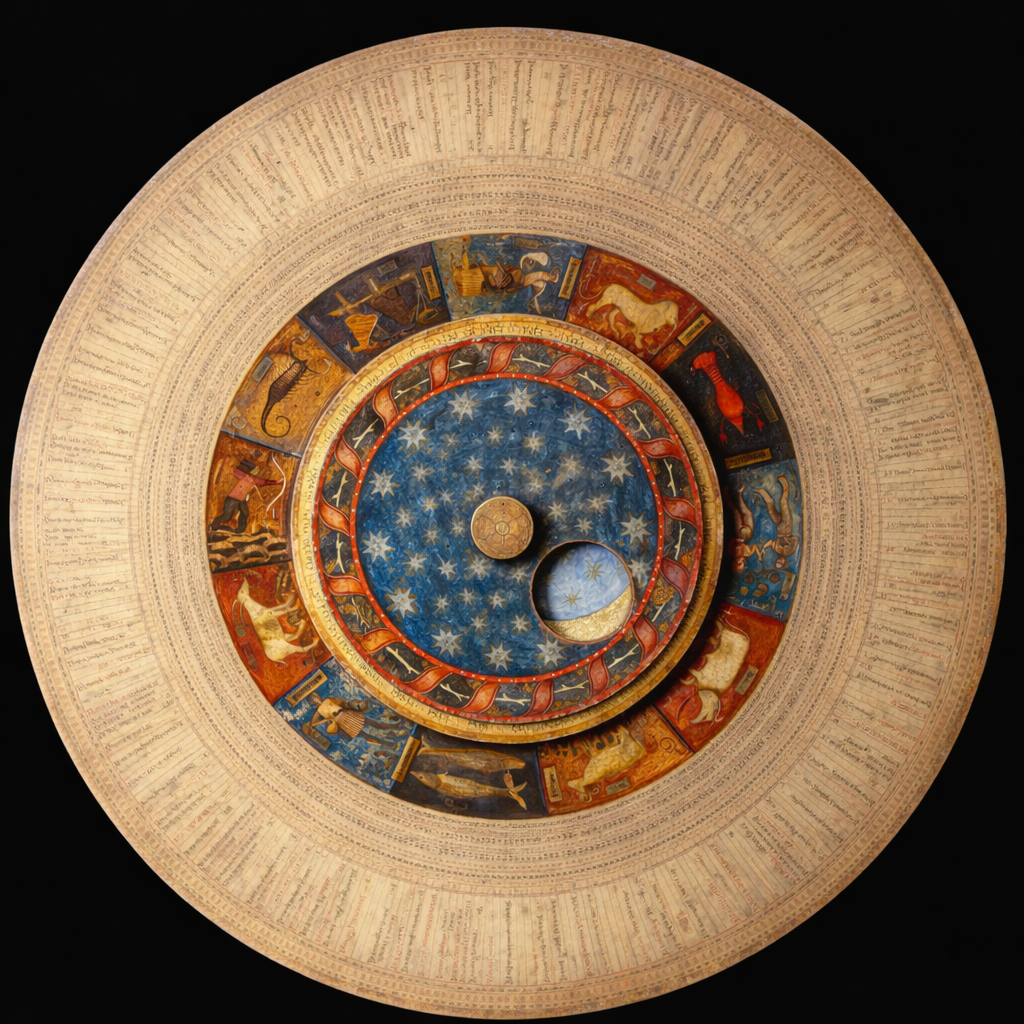

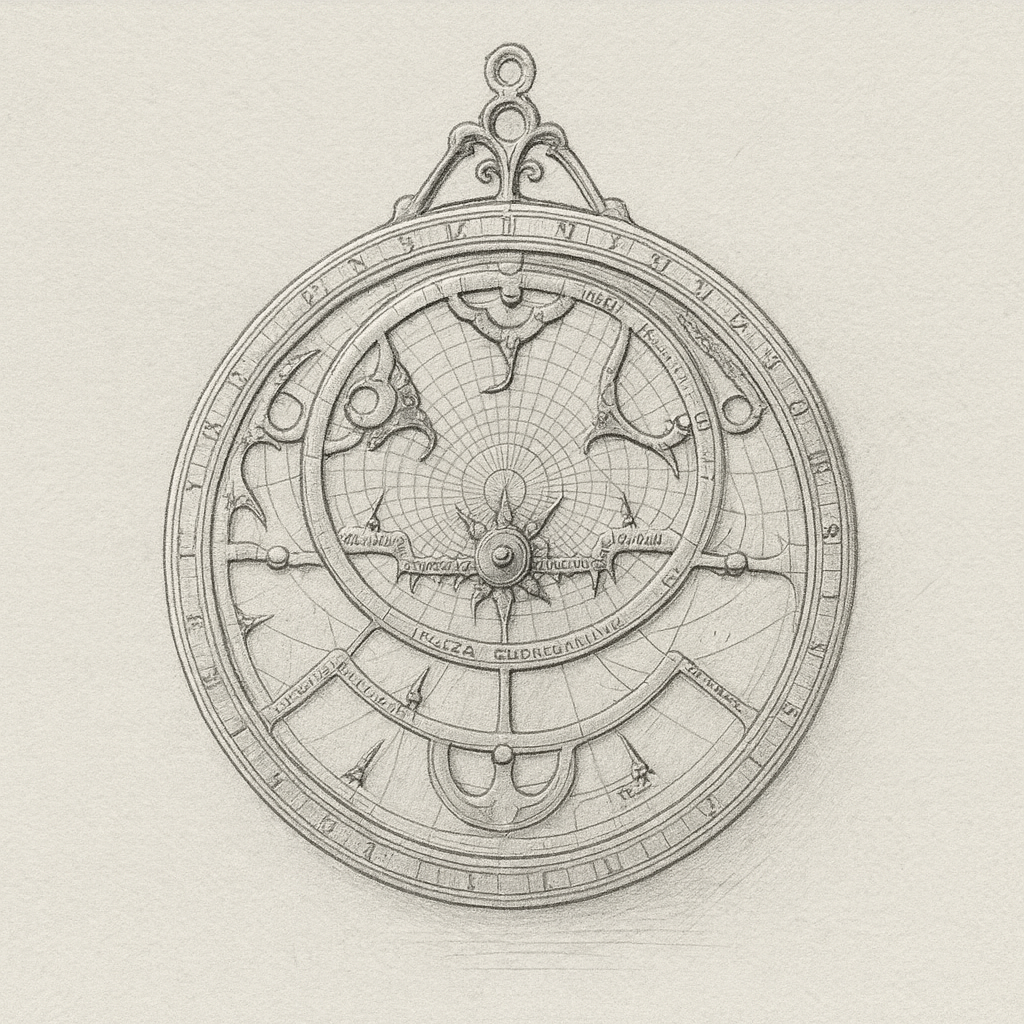

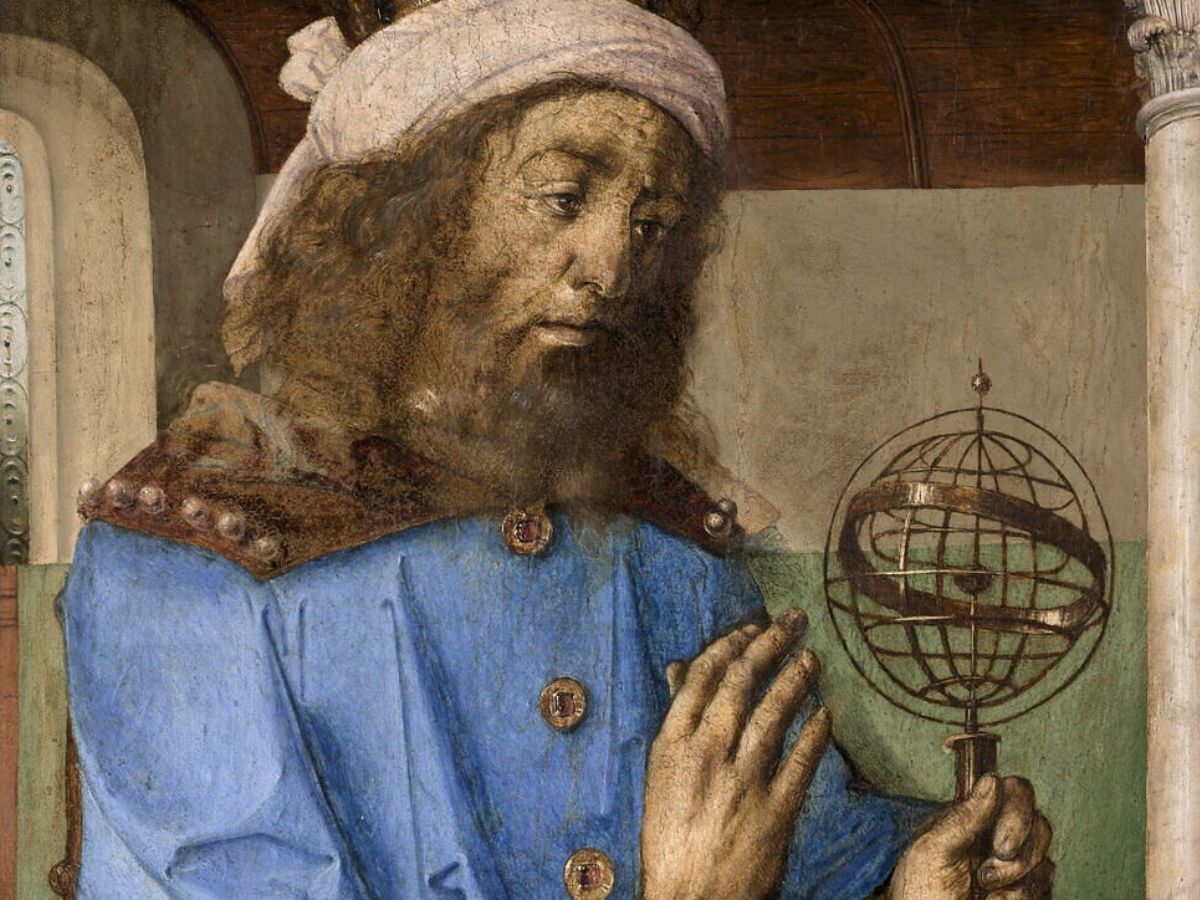

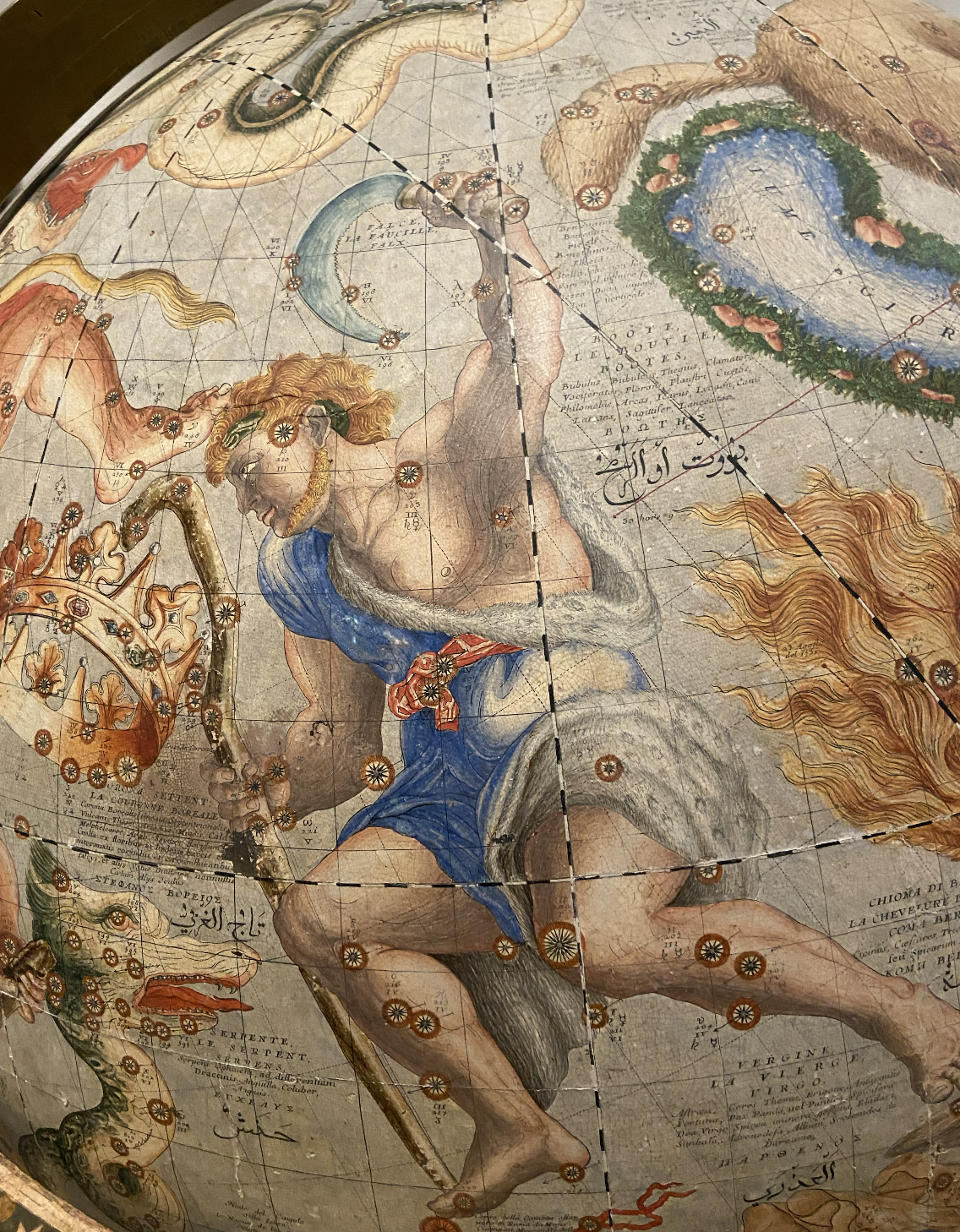
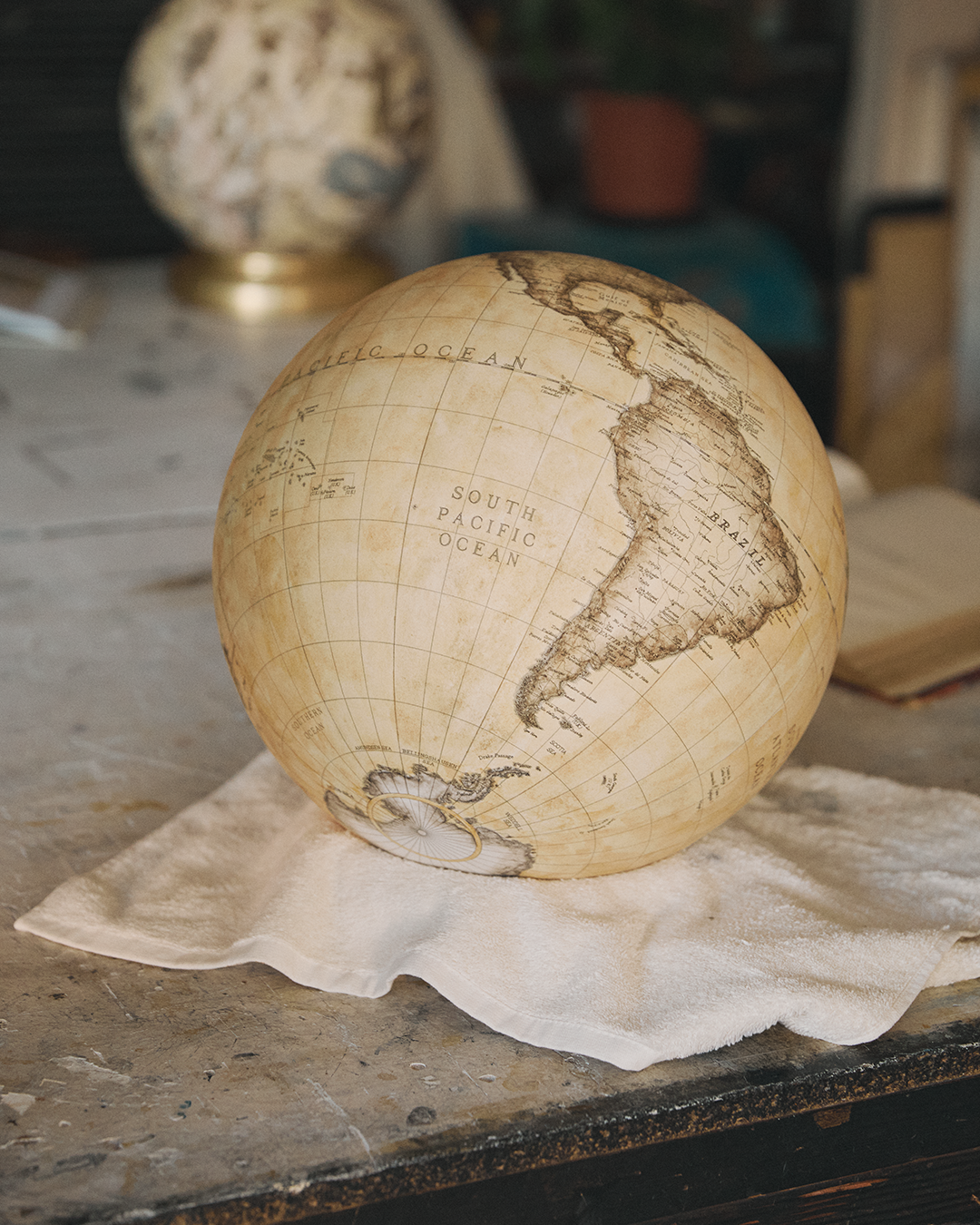



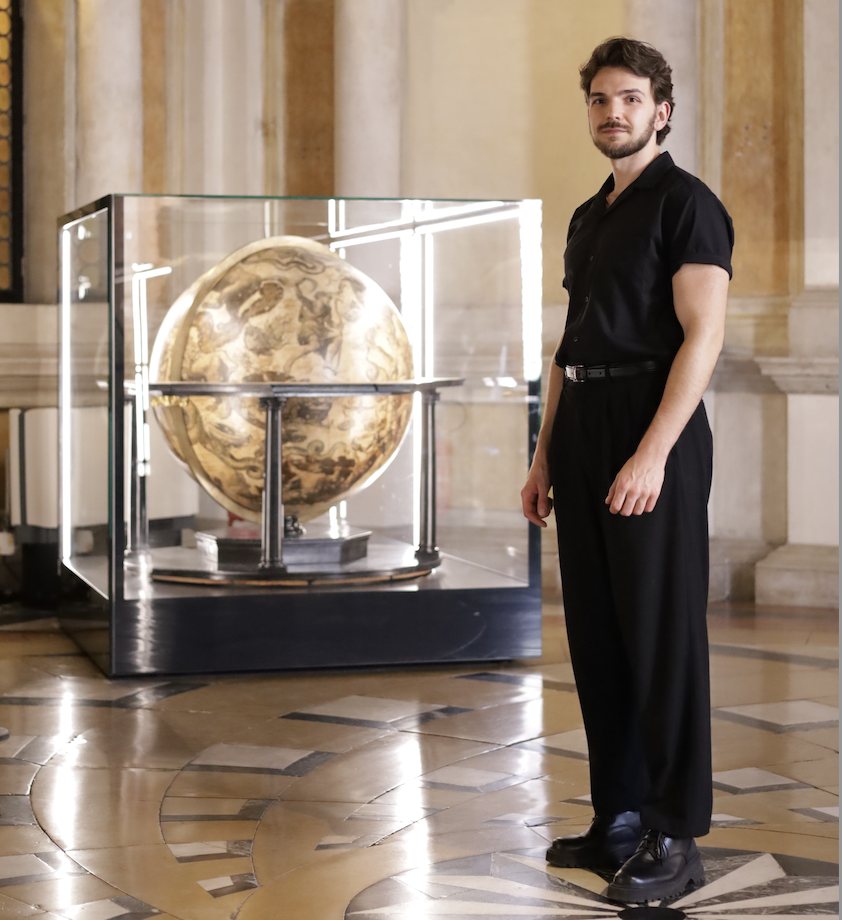



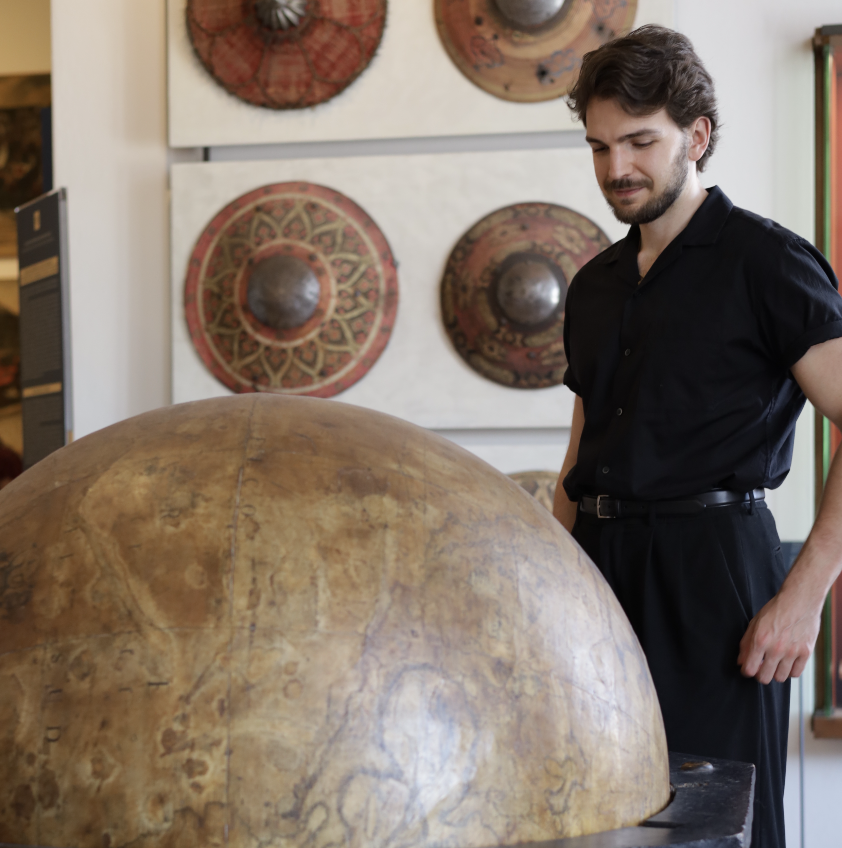

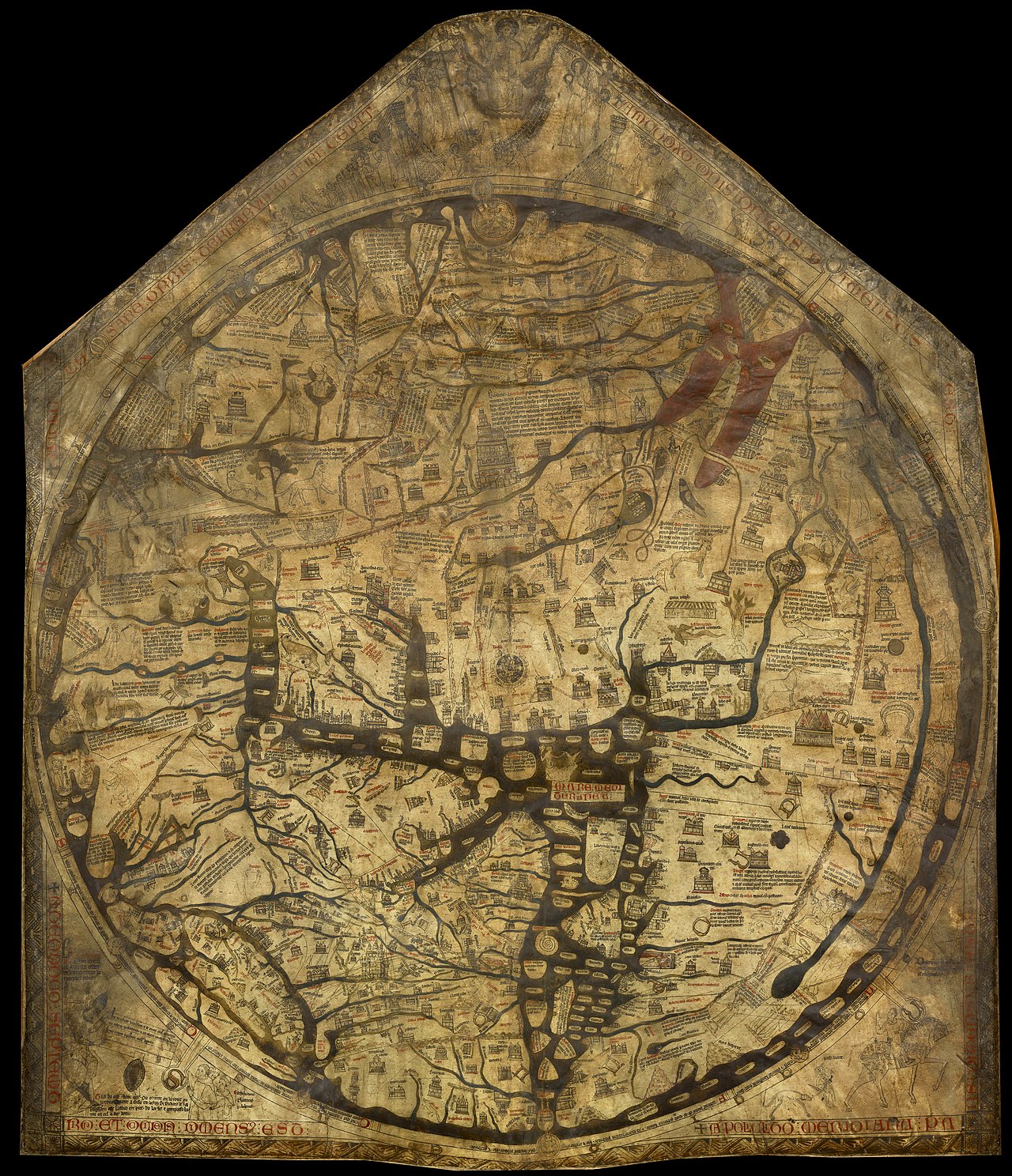
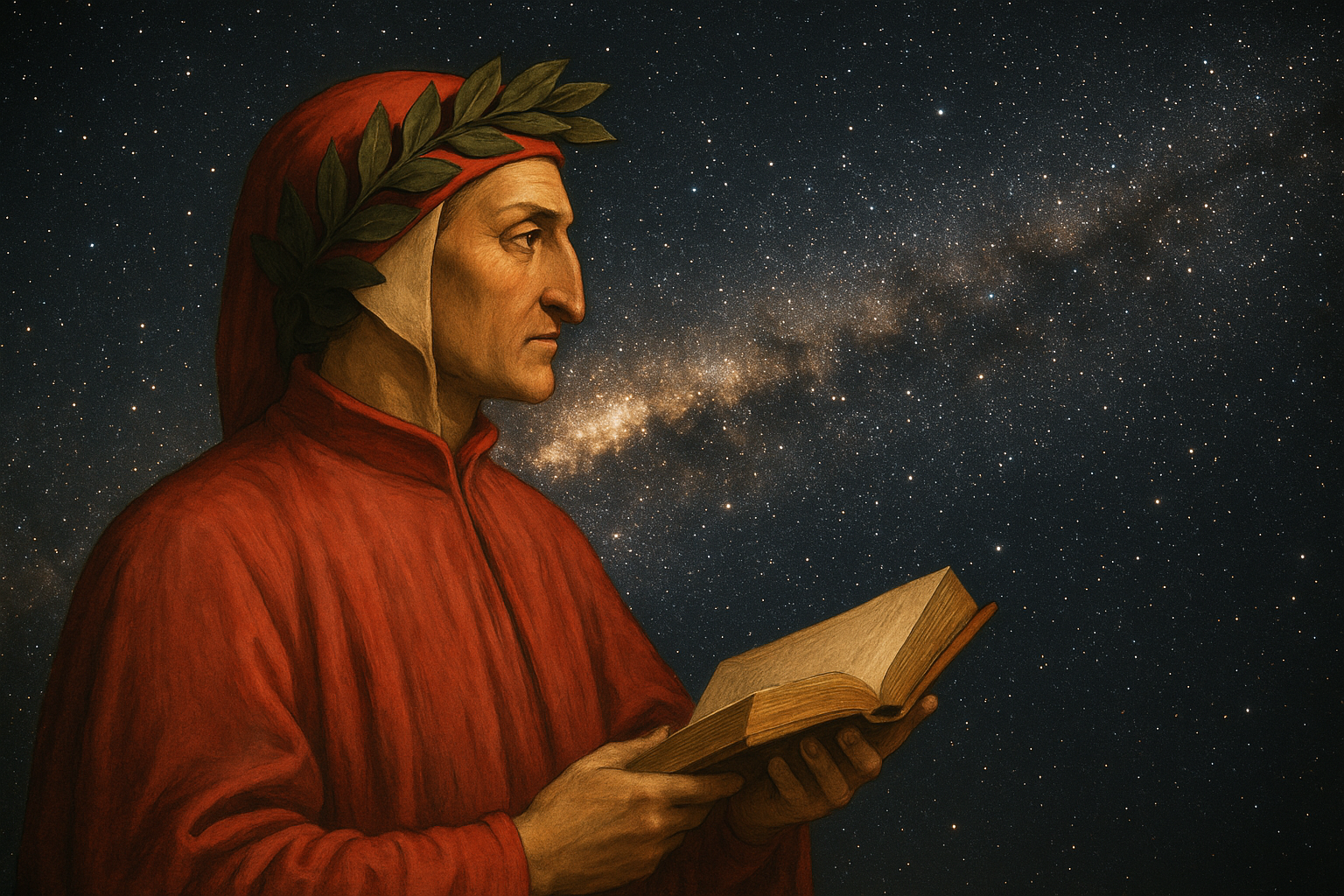








.avif)